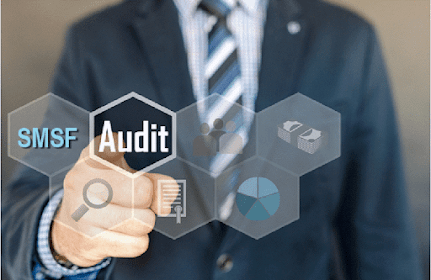What Are The Key Responsibilities Of A Professional And Skilled SMSF Auditor?
Who is the SMSF auditor?
SMSF (self-managed super fund) auditor is
the person who carry out the annual financial and compliance audit of an SMSF's
operations and provide the Self-managed superannuation fund independent
auditor's report approved form to trustees within 28 days of receiving all
relevant documentation.
What do you mean by auditing SMSF?
Auditing SMSF means to carry out the annual financial and compliance audit of SMSF's operations.
Approved SMSF auditors have a critical role in helping to maintain the health and integrity of the SMSF sector through the annual audit of each SMSF.
There are different aspects of auditing that come under the role of an SMSF auditor, let’s talk about them in detail.
1. Financial audit
Things to be undertaken by the auditor under financial auditing.
1. Preparing and auditing the audit plan in writing, which
details the approach to be undertaken.
2. Identify the nature, timing and extent of audit procedures used to
address the risk that financial statements are materially misstated.
3. Gather appropriate evidence to support assertions for material account balances and transactions in signed financial statements.
Conduct testing about:
1. Assets and liabilities
2. All transactions
3. Accuracy of data
4. Ownership and obligations of SMSF
5. Scheduling events
2. Compliance audit
Being an SMSF auditor, it is your duty to possess the required capabilities and competencies to conduct a compliance audit of an SMSF.
This includes complete understanding of the relevant legislation and its application to SMSFs. You need to consider the following things while undertaking this task:
1. Analyse all possible risks
2. Collect all information and evidences to support your case
3. Test identified contraventions against the Auditor/actuary
contravention report (ACR) reporting criteria
4. Precise documentation about opinions, judgments and conclusions
3. Undertake the winding up process
When winding up an SMSF, there are specific requirements SMSF trustees must attend to, including appointing an SMSF auditor to undertake the final audit.
Monitoring fund compliances
and wind-up requirements are the responsibilities of an auditor. Moreover, he
has to check all the obligations. These obligations includes:
1. lodging the final SMSF annual return
2. keeping the SMSF bank account open to pay the final tax liability
3. keeping all records required under the super laws
4. Documentation
Documentation that you must
posses a copy of:
1. Letter of audit engagement- It confirms your acceptance of the
appointment and clearly states the scope of the financial audit and the
compliance audit within the super laws.
2. Representation letter- It must include all representations required
by the AUASB's auditing standards and should be signed by all trustees.
3. Management letter- In case of any concern, provide trustees with a
management letter.
4. Working papers- The working papers should include your reasoning on
all significant matters arising during the audit that require the exercise of
judgment, together with your conclusions and recommendations.
Documentation must be taken seriously to avoid an ATO visit and you need to have all the required documents as proof in case of an ATO visit.
Summary
The last person in a long line of checks and balances is your SMSF’s auditor before the fund’s income tax and annual return goes to the ATO.
His job is to provide an independent opinion that the assets of the fund actually exist and that the fund is being conducted as required by the SIS Act.
To this end the fund
accountant relies on the SMSF
Auditor to give a degree of confidence that their clients’ superannuation
funds have been administered professionally and in a compliant manner.
Thus, an auditor plays a prominent role in SMSF funds and contributions can’t be overlooked.



Comments
Post a Comment